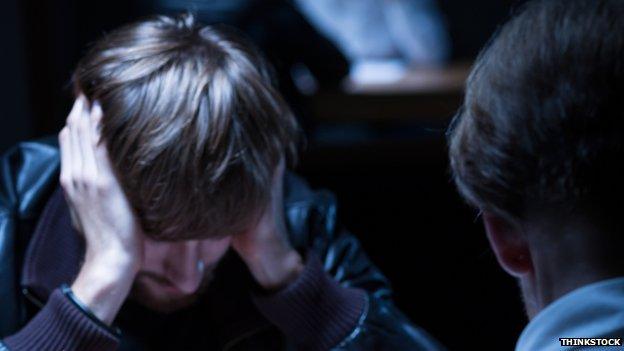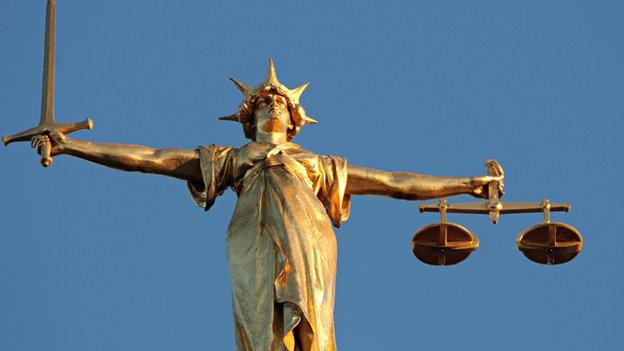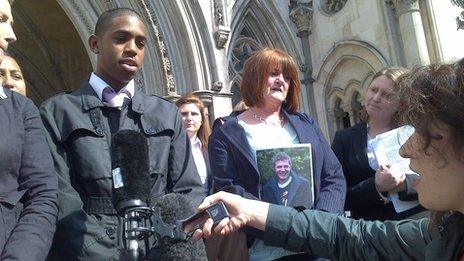'Appropriate adults not being used' for many vulnerable people in custody
- Published

Up to a quarter of a million vulnerable people are not being supported by an "appropriate adult" while in police custody, a Home Office report, external suggests.
It said lack of awareness and a shortage of trainees meant police often ended up questioning adults with mental illness or learning issues without one.
Home Secretary Theresa May said the situation was "not acceptable".
Appropriate adults are trained volunteers who help with communication during police interviews.
They are supposed to ensure mentally vulnerable people who are arrested or questioned understand what is happening, and that their legal rights and welfare are safeguarded.
They were introduced in the 1980s following miscarriages of justice involving vulnerable people.
'Moral duty'
Local authorities are required to provide appropriate adults whenever children are in contact with police and there is no parent or guardian present, but there is no duty to do the same in respect of vulnerable adults.
In some areas, no organised scheme for adults exists.
Researchers analysed police data and found appropriate adults were used in about 45,000 of the 1.4m detentions and voluntary interviews of adults each year.
It is estimated that 280,000 of those detentions involves a person who is "mentally vulnerable".

What does an appropriate adult do?
Appropriate adults do not provide legal advice, but assist with rights and broader welfare.
Nuala Chapman, an appropriate adult, told BBC Radio 5 live that she would be called after a medical practitioner had decided someone in custody needed support.
"We then go to the station, we go through all the processes with them, we make sure they understand what is going on, we go through interview with them and... facilitate communication between all the people in the interview," she said.
"Our role ends once they have either been charged or bailed."

The report, external, entitled There to Help, found police were least likely to identify vulnerability in areas which did not have an organised appropriate adult scheme.
Custody officers reported spending hours trying to find a suitable appropriate adult. They admitted to sometimes asking random members of the public, or proceeding without one.

The Law Society said appropriate adults ensured 'fair justice for all'
Chris Bath, chief executive of the National Appropriate Adult Network, the charity which led the study, said: "People with learning disabilities, mental ill health, traumatic brain injuries or autistic spectrum disorders are some of the most vulnerable citizens, and state detention is perhaps the most vulnerable situation.
"We have a moral and a legal duty to ensure appropriate adults are available wherever people live."
The report's recommendations include:
An explicit statutory duty on police officers to secure an appropriate adult for all mentally vulnerable adults
A new strategic framework for appropriate adult provision for adult detainees
Ensuring all custody officers have received training on vulnerability and appropriate adults
Improving police record keeping on vulnerable suspects
The home secretary said appropriate adults "provide vital support and help to demystify what can be a confusing, sometimes frightening, experience in police custody".
Mrs May added: "The status quo is not acceptable and I am concerned that vulnerable adults are not always receiving the support of an appropriate adult.
"We are currently examining the recommendations and implementation options to ensure that vulnerable people are provided with the support they are entitled to."
Avtar Bhatoa, from the Law Society, said appropriate adults were needed to ensure "fair justice for all".
"With the right support, mentally vulnerable people are less likely to suffer an injustice or to waive their right to free legal advice through fear and misunderstanding, which can compound their disadvantage in the justice system, " he said.
- Published22 August 2013
